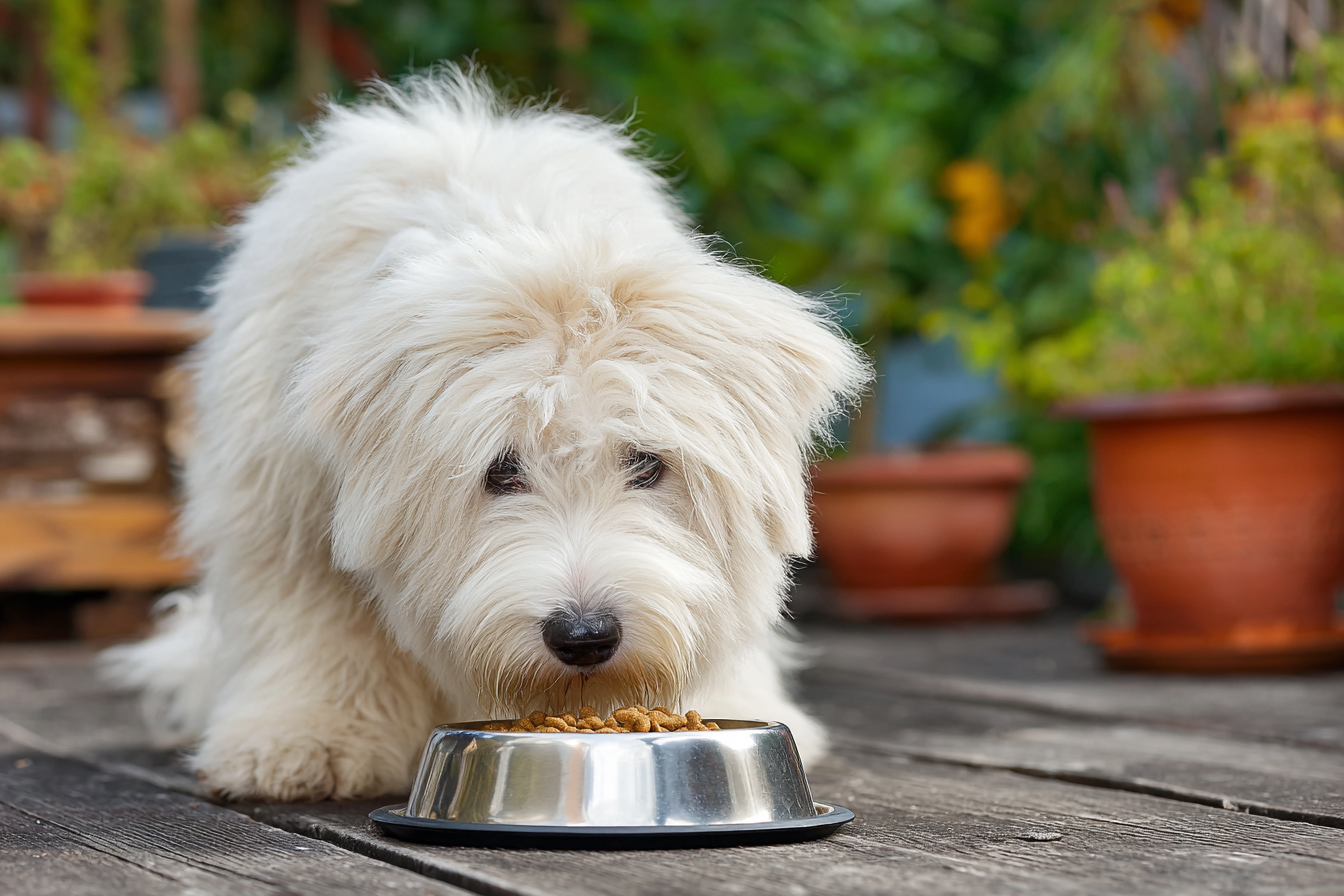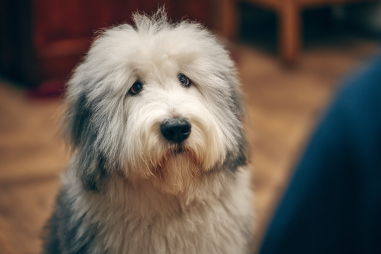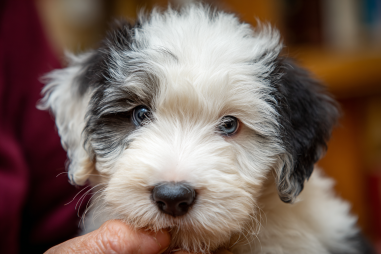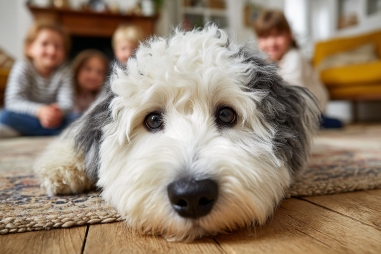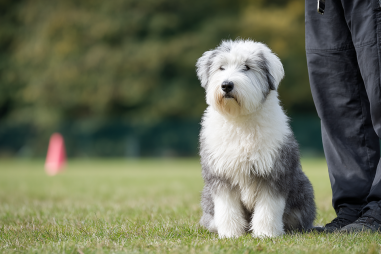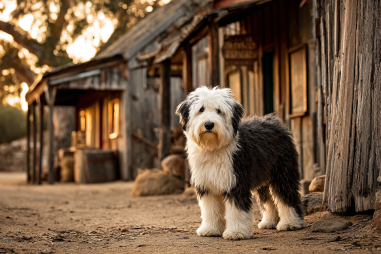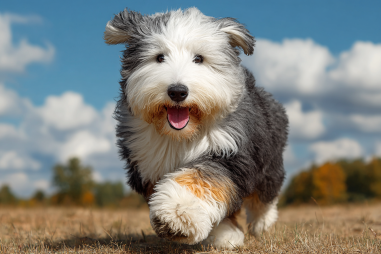Proper nutrition is foundational for maintaining the health, vitality, and longevity of your Old English Sheepdog. With their distinctive fluffy coat and energetic nature, these wonderful companions require a well-balanced diet tailored to their unique needs. Whether you’re a new owner or have cared for Old English Sheepdogs for years, understanding the specifics of their diet can make all the difference in your dog’s overall wellbeing. This guide will walk you through everything from nutritional requirements to portion control and tips on treats and supplements, ensuring your furry friend lives a happy and healthy life.
Nutritional Needs of Old English Sheepdogs
Old English Sheepdogs are medium to large-sized dogs known for their thick coats and robust build. Their diet needs to support their active lifestyle and promote healthy skin and fur. High-quality protein is essential, as it supports muscle maintenance and energy. Since these dogs can be prone to joint issues as they age, nutrients that support bone and joint health are also important.
In addition to protein, a well-rounded diet for an Old English Sheepdog includes:
- Carbohydrates: Provide a steady source of energy, preferably from whole grains and vegetables.
- Fats: Healthy fats are crucial for energy and help maintain the dog’s luscious coat. Omega-3 and Omega-6 fatty acids are particularly beneficial.
- Vitamins and Minerals: These support overall bodily functions, immune health, and cellular repair.
- Fiber: Helps with digestion and maintaining gut health.
Recommended Types of Dog Food
Choosing the right food for your Old English Sheepdog can be overwhelming with so many options available. Generally, you have three main categories to consider: dry kibble, wet food, and raw or homemade diets.
Dry Kibble
High-quality dry kibble is a convenient and balanced option for many dog owners. Look for brands that list meat as the primary ingredient and avoid fillers like corn and soy. Kibble also helps with dental health by reducing tartar buildup.
Wet Food
Wet food is often more palatable and can encourage hydration, especially for dogs that don’t drink enough water. It has a higher moisture content but can be more expensive and may not provide the same dental benefits as kibble.
Raw and Homemade Diets
Some owners prefer preparing homemade meals or following a raw diet plan. While this can offer the most control over ingredients, it requires careful formulation to ensure nutritional balance. Consulting with a veterinary nutritionist is recommended if you choose this route.
Portion Sizes and Feeding Schedules
Portion control is essential to maintain a healthy weight for your Old English Sheepdog. Overfeeding can lead to obesity, which increases the risk of joint problems and other health issues. The amount your dog needs depends on factors such as age, weight, activity level, and metabolism.
As a general guideline, adult Old English Sheepdogs typically eat around 3 to 4 cups of high-quality dry food per day, divided into two meals. Puppies and senior dogs have different needs:
- Puppies: Require more calories and nutrients to support growth and development. Feeding them 3-4 times a day is recommended.
- Seniors: May need fewer calories but more joint-supportive nutrients.
Maintaining consistent feeding times helps with digestion and can prevent begging or overeating.
Supplements and Treats
While a balanced diet should provide most nutrients, some supplements can enhance your Old English Sheepdog’s health. Commonly recommended supplements include:
- Omega-3 Fatty Acids: Promote a healthy, shiny coat and reduce inflammation.
- Glucosamine and Chondroitin: Support joint health, especially beneficial for larger breeds prone to arthritis.
- Probiotics: Aid in digestion and support a healthy gut microbiome.
Treats are a great way to reward your dog but should be given in moderation. Opt for nutritious, low-calorie treats, and avoid those high in sugar or artificial ingredients. Homemade treats made from wholesome ingredients can be a great option.
Foods to Avoid
Certain foods can be toxic or harmful to Old English Sheepdogs and should be strictly avoided:
- Chocolate: Contains theobromine which is toxic to dogs.
- Grapes and Raisins: Can cause kidney failure.
- Onions and Garlic: Harmful to red blood cells and can lead to anemia.
- Avocado: Contains persin, which can be toxic in large amounts.
- Alcohol, Caffeine, and Artificial Sweeteners (like xylitol): Dangerous for dogs.
- Excessive Fatty Foods: Can cause digestive upset and pancreatitis.
Always keep these foods out of reach, and if you suspect your dog has ingested any toxic items, contact your veterinarian immediately.
Monitoring Weight and Health Through Diet
Maintaining an ideal weight is critical to your Old English Sheepdog’s wellbeing. Regularly monitor their body condition by feeling along their ribs and checking for a visible waistline. A healthy dog should have a slight tuck-up behind their ribs without excess fat covering.
Regular veterinary checkups will help identify any nutritional deficiencies or health issues early. Keep an eye on your dog’s energy levels, coat condition, stool consistency, and behavior. Changes in these areas can often be linked to dietary problems.
If you notice weight gain, lethargy, or skin issues, reassess their diet, portion sizes, and activity levels. Adjustments may be necessary to maintain optimal health.
Helping Your Old English Sheepdog Thrive
Feeding your Old English Sheepdog properly isn’t just about filling their bowl—it’s about supporting their entire system to live a longer, happier life. By understanding their unique nutritional requirements and making informed choices about food types, portions, and supplements, you provide the best foundation for health. Remember, every dog is an individual, so don’t hesitate to consult your veterinarian to tailor a diet plan specifically for your furry friend. With attention to nutrition, regular monitoring, and a loving approach, your Old English Sheepdog will enjoy the vibrant and active lifestyle they deserve.

